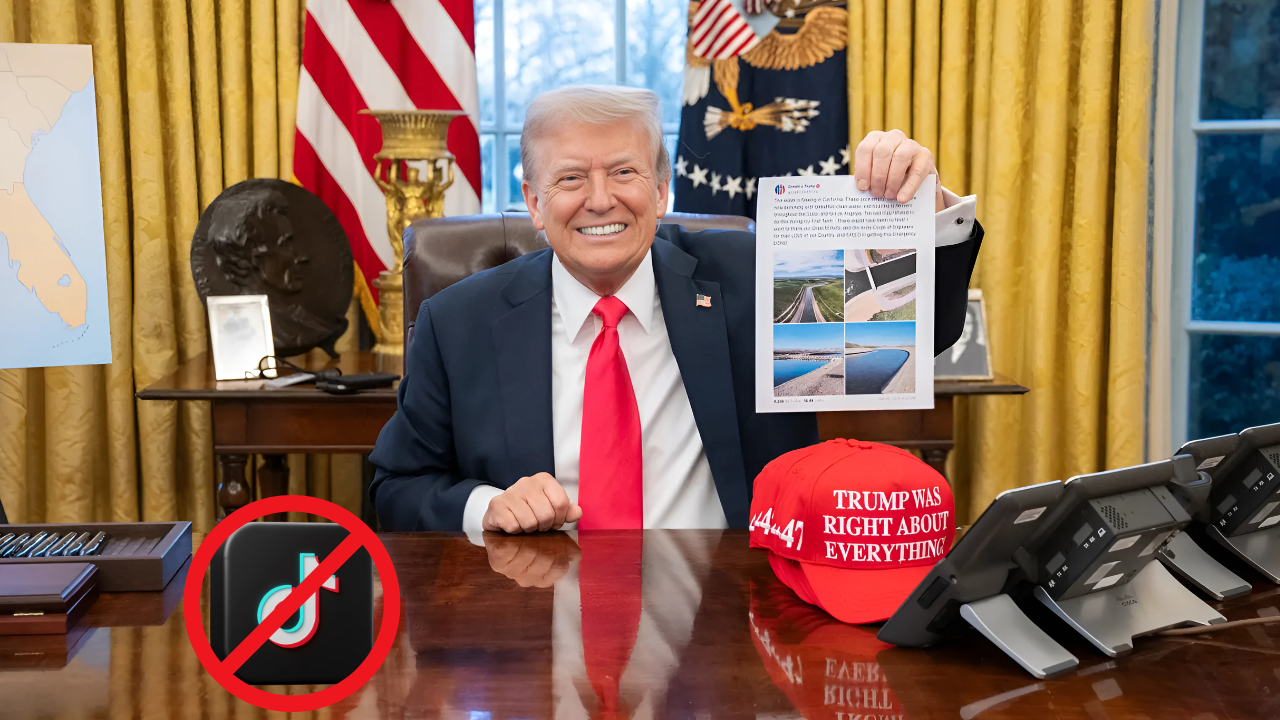The ongoing saga of the US TikTok ban has entered a new chapter, with the ban being extended for a third time. This development not only affects millions of users and content creators but also has significant implications for US-China relations, data privacy, and the global digital economy. Here’s a comprehensive look at the latest updates, the motivations behind the extension, and what the future may hold for TikTok in the United States.
Background of the TikTok Ban
Why Was TikTok Targeted?
The primary concern driving the US government’s actions against TikTok centers on national security. Lawmakers argue that ByteDance, the Chinese parent company of TikTok, could be compelled to share user data with the Chinese government if requested. While this remains a largely “theoretical concern,” it has nonetheless fueled bipartisan support for legislative action to either force a sale of TikTok’s US operations or implement a nationwide ban.
Timeline of the Ban
-
Initial Threats: The Trump administration initially threatened to ban TikTok in 2020, citing security concerns.
-
Legislation: In 2024, the Supreme Court upheld a decision requiring ByteDance to divest TikTok’s US assets or face a ban.
-
Extensions: The deadline for the ban has now been pushed back three times, with the latest extension announced in June 2025.
Geopolitical and Economic Context
A Tool in US-China Negotiations
Experts suggest that the TikTok ban is being used as a bargaining chip in broader US-China negotiations. President Trump has indicated that extending the ban could be part of a larger deal with China, involving trade tariffs, rare earth minerals, and even student exchanges. According to Darío García de Viedma, a fellow at the Elcano Royal Institute, the TikTok issue is unlikely to be resolved in isolation and will probably be part of a broader negotiation package.
Comparison with India’s Approach
India banned TikTok and 58 other Chinese apps in 2020 following border tensions with China. This move was widely seen as a demonstration of sovereignty and a response to national security concerns. In contrast, Trump’s current strategy appears to position him as a “savior” of TikTok, using the issue to appeal to different segments of the US electorate while maintaining leverage over China.
National Security and Data Privacy Concerns
Are TikTok’s Risks Unique?
While TikTok is often singled out for its Chinese ownership, experts argue that all major social media platforms present similar data privacy risks. Both US and Chinese laws allow governments to access data stored on servers worldwide, and the business model of collecting and selling personal data to advertisers is pervasive across the industry.
“All of these social media apps are a security risk if you work in a sensitive area because they all do massive data collection through the device that they’re installed on. And this has nothing to do with the fact that TikTok comes from China and everything to do with the business model that the company has.”
— Jan Penfrat, European Digital Rights
Data Brokerage and Real-Time Bidding
Government agencies can often bypass social media companies entirely by purchasing user data from commercial data brokers, making the focus on TikTok’s ownership somewhat misplaced in the broader context of digital privacy.
Potential Outcomes and Impacts
What Happens If TikTok Is Sold or Banned?
-
Sale of US Operations: If ByteDance is forced to sell, it’s unclear whether the sale would include TikTok’s core algorithm or just its US-based operations. Excluding the algorithm could significantly alter the user experience and content recommendations, potentially disrupting the “TikTok economy” that supports many creators.
-
Ban Scenario: A full ban could lead to a mass migration of users and creators to other platforms like Instagram or YouTube, impacting digital culture, advertising revenue, and influencer livelihoods.
Strategic Uncertainty
Some analysts believe that the ongoing uncertainty is itself a strategic move. By keeping TikTok’s future in limbo, the US administration may be discouraging investment in the platform and encouraging creators to diversify, thus reducing TikTok’s market value and influence.
| Date | Event/Action | Details/Outcome |
|---|---|---|
| 2020 | Initial Ban Threat | Trump administration cites national security concerns |
| 2024 | Supreme Court Ruling | ByteDance must sell TikTok US or face ban |
| June 19, 2025 | Ban Deadline (Extended) | Ban extended for third time; negotiations ongoing |
| 2020 | India Bans TikTok | Ban on TikTok and 58 Chinese apps after border conflict |
| Ongoing | Data Privacy Debate | Concerns over data sharing, not unique to TikTok |
Broader Implications for Tech Policy
Will Other Chinese Apps Be Targeted?
Some experts predict that the US could eventually move to ban or restrict other Chinese-owned apps, mirroring India’s approach. This would mark a significant escalation in the ongoing “tech cold war” between the US and China.
Impact on Global Digital Economy
The uncertainty surrounding TikTok’s future has ripple effects beyond the US. Changes to TikTok’s operations or algorithms could influence content trends, advertising markets, and the livelihoods of creators worldwide.
FAQs
Q1: Why was the US TikTok ban extended again?
The ban was extended as part of ongoing negotiations between the US and China, with national security and trade issues at stake.
Q2: Is TikTok uniquely risky compared to other social media apps?
Experts argue that all major social media platforms pose similar data privacy risks due to their data collection and advertising models.
Q3: What happens if ByteDance sells TikTok’s US operations?
If the sale excludes TikTok’s core algorithm, it could significantly alter the user experience and disrupt the creator economy.
The extension of the US TikTok ban for a third time highlights the complex interplay between national security, geopolitics, and the global digital economy. While the future of TikTok in the US remains uncertain, the broader debate about data privacy and tech sovereignty is likely to intensify, with far-reaching consequences for users, creators, and policymakers alike.
Read More Social Security Benefits at Risk: Major Cuts Looming in 2033 Without Congressional Action

